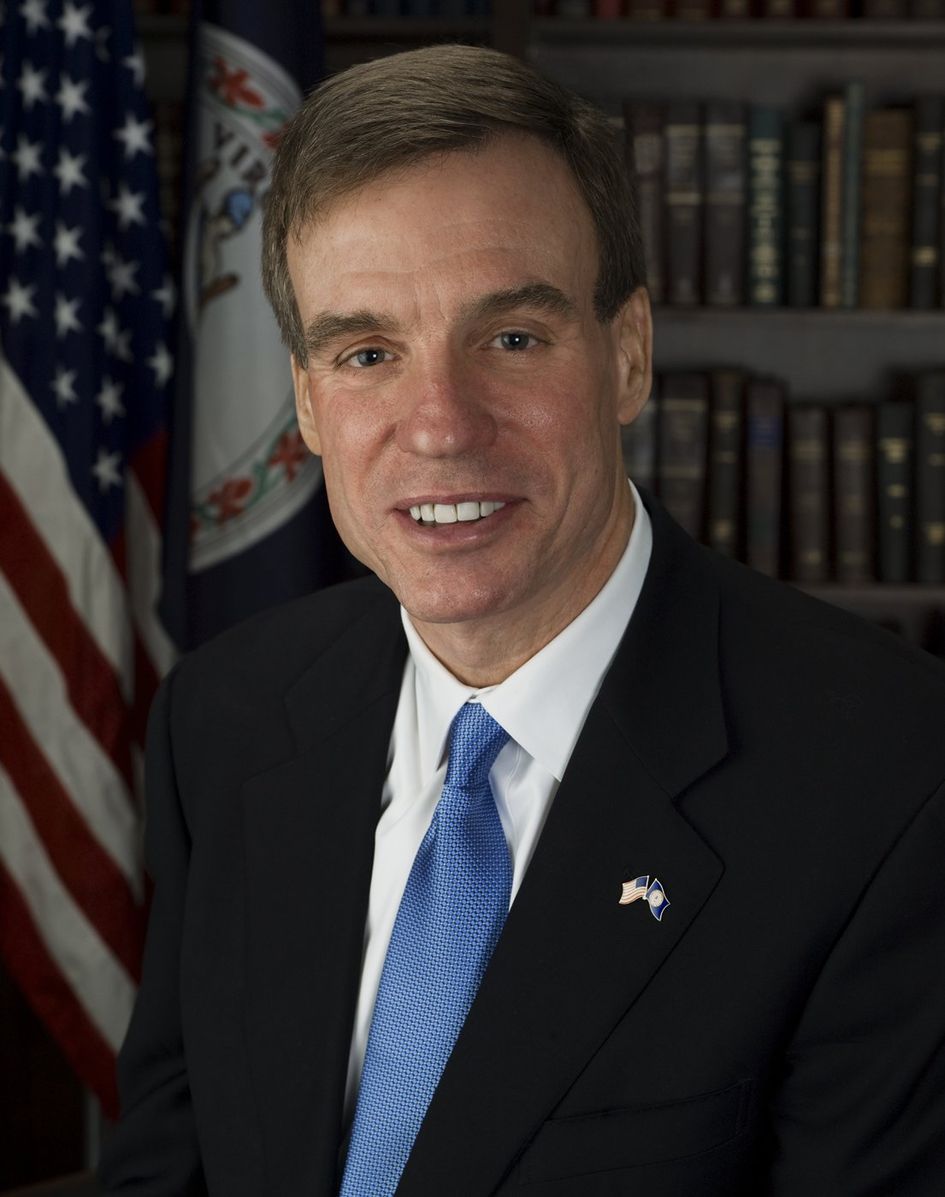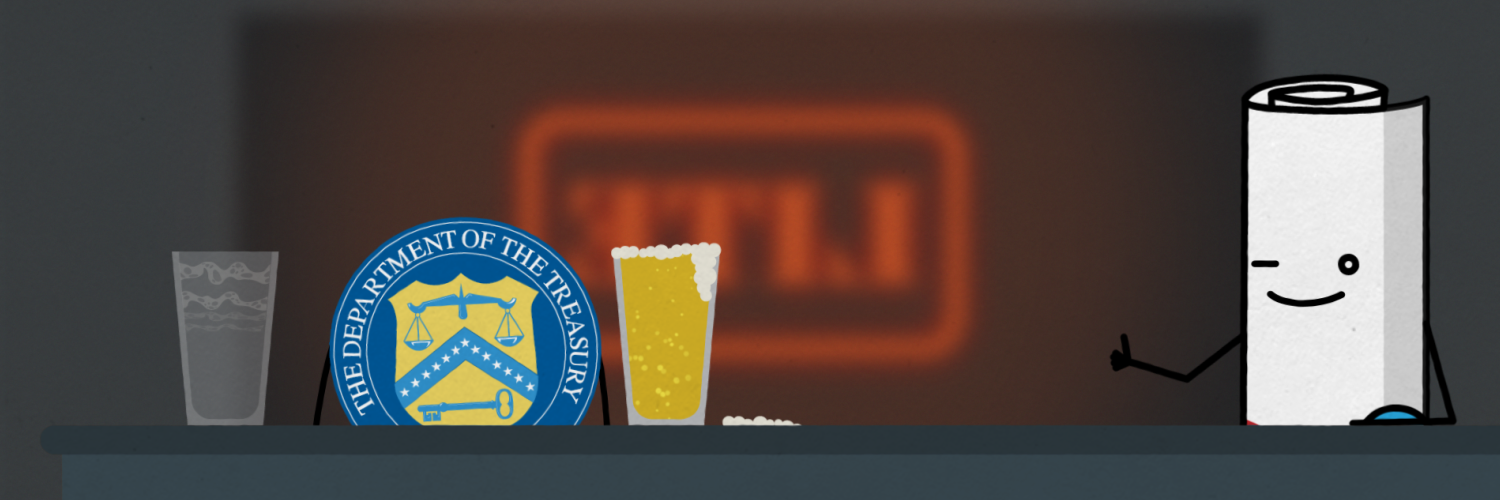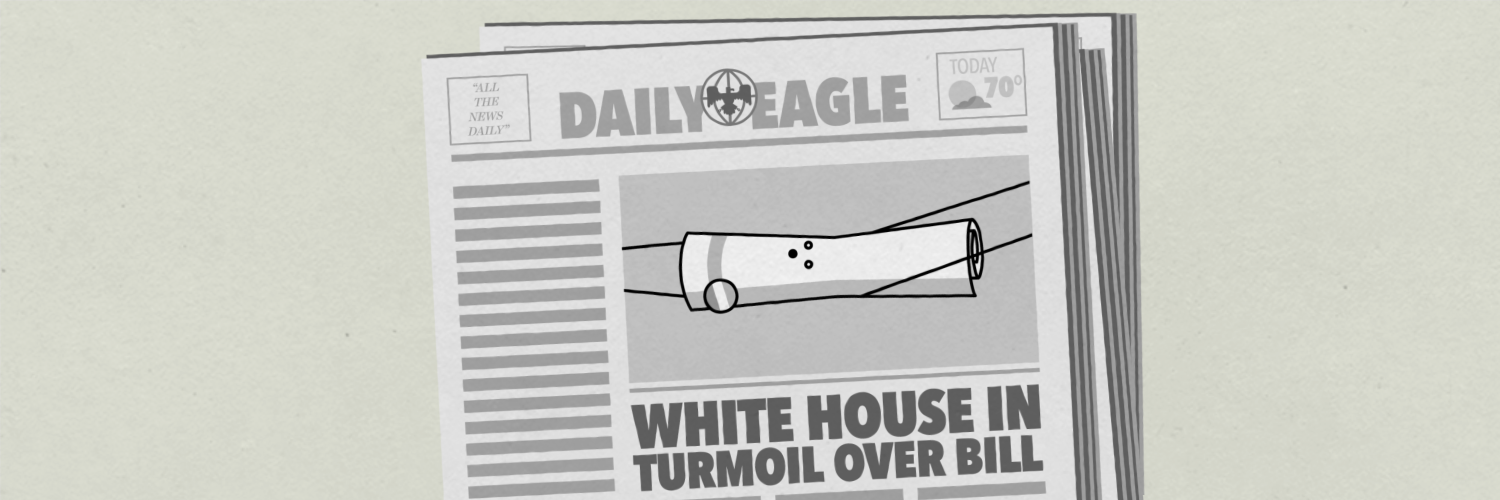Yet some members of Congress do manage to beat the odds, introducing bills that make it into law through the traditional path. One such bill — the Digital Accountability and Transparency Act, or DATA Act — was signed into law on May 9, 2014. Its main purpose is to put all federal spending online in a searchable, user-friendly online database. Basically, it lets people Google where government money goes. The bill was widely praised as an important step toward open government, and it was unanimously approved by both the House and Senate.
But even this common-sense reform nearly failed. Interviews with senators, Capitol Hill aides, and advocacy group staffers reveal an arduous three-year process during which the DATA Act's success was often imperiled — and during which an already modest law became even weaker. It's a saga that includes lobbying, leaks to the press, bureaucratic sabotage, and last-minute twists. And crucially, it involves compromise after compromise. Put together, the story offers a new guide not just to how a bill can become a law — but why so few actually become laws, and why the ones that do are often so disappointing. In that way, it's an updated Schoolhouse Rock lesson for our polarized, dysfunctional Congress.
We thought Schoolhouse Rock's "I'm just a bill" was missing a few steps.
The idea
It all started when Representative Darrell Issa got an inspiration from a surprising source. The top Republican on the House Oversight Committee, Issa was no fan of the president. He once broached the prospect of impeaching Obama, and he said in a radio appearance that Obama was "one of the most corrupt presidents in modern times." He was even less enamored of Obama's $787 billion stimulus law, signed in February 2009 and meant to boost the economy. He called the bill a "failure," and held hearings where he hounded the administration on its estimates of how many jobs were created or saved by it, and criticized how its money was spent. With so much money going out so quickly, Issa had dark fears of waste, fraud, and abuse.

Congressman Darrell Issa
The White House had the same fears — they knew even a relatively small theft scandal could jeopardize the whole project politically — which meant jeopardizing the economic recovery. According to Michael Grunwald's book The New New Deal, Vice President Biden told aides, "If someone can prove we wasted a billion dollars, it's gone, man! Gone!" To prevent fraud, the administration knew it needed to bring unprecedented transparency to the law's spending. Biden was given the job, and he recruited Earl Devaney — a former cop, Secret Service agent, and inspector general. In that last role, Devaney had amassed several major scalps — he had a leading role in the investigation of lobbyist Jack Abramoff, and also helped expose a "sex, drug use, and graft" scandal implicating several Interior Department officials. Now, he would head the Recovery Transparency and Accountability Board — which Washington soon dubbed the RAT board. And he'd be in charge of a website that would host all information about stimulus money grants and recipients —Recovery.gov.
Issa, the multimillionaire co-founder of an electronic manufacturer, was familiar with the difficulties Devaney would face. Financial information was coded differently from agency to agency, as was information about what each spending program actually did. "Imagine if all 32 Major League Baseball teams calculated batting averages differently, used varying definitions for what constituted a fielding error, and didn't even bother to record some numbers like strikeouts," Issa later wrote. These problems had hobbled an earlier attempt to post federal spending online in a law co-authored by then-Senator Barack Obama.
But Issa came to believe Recovery.gov worked. Its information was mostly accurate, searchable online, and downloadable, and the website was user-friendly. Devaney's insight was requiring all federal agencies giving out stimulus money, and all entities getting a piece of that money, to report their financial information to the RAT board in a standardized format — rather than the normal disjointed system where each agency used its own accounting rules. There were some briefly embarrassing stories about funds being misattributed to nonexistent Congressional districts or phantom zip codes, but overall Devaney's effort was widely viewed as a success. He may even have helped deter fraud and theft. "Outside experts had warned that 5 percent of the stimulus could be stolen," Grunwald writes, but by late 2011 the RAT board had only documented $7.2 million in losses — 0.001 percent of the total stimulus. By January 2010, Issa was won over, saying at a hearing, "I think there's going to be one silver lining to the stimulus, and that's the work Earl Devaney and Recovery.gov are doing."
On November 30, 2010, Issa went to the White House for a meeting with Vice President Biden. There, he praised Devaney's RAT board, and mused about whether its lessons could be applied more broadly. "We both concurred that the Recovery Board's successes could and should be replicated across the entire federal government," Issa later said. So he began working on a bill that would do just that. Over months, Issa and and his staffers met with other members of Congress, Capitol Hill aides, and various interest groups as they shaped their idea. They extensively consulted with Devaney and the RAT board staff, and got feedback from the Sunlight Foundation and other nonprofits that advocate for transparency.
Finally, on June 13, 2011, Issa introduced the first draft of the Digital Accountability and Transparency Act — the DATA Act. The bill proposed to overhaul how the entire federal government disclosed its spending. First, all financial data would have to be reported in a standardized way, as Devaney's board required. Second, a new government agency would collect and disclose all the data on a website like Recovery.gov. This agency would be modeled after the RAT board, but given the more appealing acronym FAST (Federal Accountability and Spending Transparency). Third, all recipients of federal funds would have to send in a standardized form explaining the details and purpose of the money — again, as stimulus grantees did. Overall, the bill would reveal an unprecedented amount of information to the public, and require that it be done in a user-friendly way.
The bill sailed smoothly through the House. The DATA Act fell under the jurisdiction of House Oversight — Issa's committee. After he introduced the bill, he scheduled a hearing for the very next day. It soon passed the committee unanimously. The bill didn't reach the House floor until April 25, 2012. But the House was also unanimous in support.
The Senate would be harder.
1. Get the attention of the relevant committee chairman
Any bill needs a major supporter in each house of Congress, and Issa found his Senate champion early on in Mark Warner, a former Hill aide and Democratic governor of Virginia. Warner is very familiar with government inefficiency — indeed, he made a fortune from it. In the 1980s, the FCC started giving out licenses to operate cell phone franchises via a free and open lottery. "Most of the lottery winners had no intention of using their licenses; they hoped to sell them," Paul Starobin wrote in The Atlantic. As the potential of the cell phone market started to become evident, Warner brokered deals between license sellers and buyers, and borrowed money to buy his own shares in partnerships holding those licenses. He made tens of millions — Warner is the wealthiest member of the Senate, according to The Hill. (Issa is the wealthiest member of the House.)

Senator Mark Warner
"Having had a business background, I've been obsessed about data and management techniques," Warner told me. "Virginia was named best-managed state back when I was governor." He was elected to the Senate in 2008, and then given charge of a special task force on government performance — "a chance to give me a little bit of a platform but also probably to keep me busy," he says. "As we were digging in and trying to identify best and least performing programs, we realized the data you get from different agencies was like apples and oranges."
It was Devaney who suggested that Warner and Issa meet to discuss government data transparency. "Earl matched us up," Warner says. "I went over and saw Issa and it made a lot of sense to me." Warner decided to take the lead on the DATA Act in the Senate, and submitted a nearly-identical bill to Issa's. "Why shouldn't you be able to Google where your tax dollars go in a user-friendly way?" Warner says.
Once Warner had introduced the bill, the committee process came next. Any bill is referred to the particular committee of jurisdiction — but then the bill's supporter has to convince the committee's chair that it's worth spending time on. And with hundreds of competing bills, the key constraint is often just getting the committee chair's attention, and convincing him or her to spend his limited time on your measly idea.
And Warner faced another problem — he wasn't a member of the Senate Homeland Security and Government Affairs Committee, which would have jurisdiction over the bill. "Frankly, we couldn't get the Senate committee to care at first," says Hudson Hollister, a former Issa staffer. The committee chair, Joe Lieberman, had other issues on his plate. But "the House passage of the bill put some pressure on," says a Senate committee aide. Issa complained on national television that the DATA Act had "died in the Senate." So finally, Lieberman scheduled a hearing on the bill for July 2012.

2. Ease the concerns of outside groups
In today's Congress, it's very hard to pass anything that an organized interest has a problem with. And while most outside groups were indifferent to the DATA Act, some had serious objections to one key provision. The bill required all recipients of federal funds to file reports both to their specific federal agency and to Issa's new FAST board. Many of these recipients — specifically contractors, universities, and state governments — argued that this was a new costly and burdensome requirement.
"Every university would have had to report to two different entities, and there were concerns about the costs associated with that," a Senate committee aide says. TechAmerica and the Professional Services Council — two lobbying groups that represent government technology contractors — came out against the DATA Act. And the National Governors Association also issued a statement opposing it, calling it an "unfunded mandate." When your bill is opposed by the group representing every state government in the country, you're in trouble.
So Warner decided to change the bill to ease their concerns. He dropped the provision requiring new financial reports from recipients of federal funds — they would no longer have to do the extra paperwork they so dreaded. This was a big concession, because Issa and Devaney had repeatedly emphasized the importance of getting data from those who actually used government money. Now, the bill would just focus on standardizing and consolidating existing data from the agencies. (At Issa's request, the final bill included a pilot project that would, he hoped, demonstrate that the new reporting wasn't so burdensome.)
After that important change, outside group "indifference was more of a problem than direct opposition," Hudson Hollister, then Issa's lead staffer for the bill, told me. "At the same time, we needed support from the private sector, and this is not the kind of issue that even the tech industry was looking at." He realized he could more effectively help the bill from the outside. So he resigned from Issa's staff and started the Data Transparency Coalition, which mobilized support from data and accounting companies that could benefit from the bill, like PwC, Teradata, and WebFilings. The American Institute of CPAs began lobbying for action too. "The accountants just embraced this," a Senate Democratic staffer told me. "If the federal government has standards, it makes it a lot easier to manage the books of any entity doing business with the government." Warner told me that there were other potential benefits: "If I was with a bunch of capitalists, I'd tell them that monetization of some of this information is a huge opportunity as well." Because of this work on the inside and outside, the initial apathy and hostility from organized interests dispersed, and a pro-DATA Act coalition began coming together.

3. Win an ally in the federal bureaucracy
The remaining opponents to the DATA Act were inside the government rather than outside it. "Standardizing something across the federal government is very difficult," a Republican House staffer told me. "You get very strong pushback from bureaucratic parts of the government, who have a million different excuses as to why it can't be done." A Senate committee aide has a more sympathetic take: "the executive branch says, 'You're asking us to do something without giving us more money to do it.'" While the GOP-controlled House doesn't necessarily care all that much about objections from Obama's agencies, the Democratic Senate was more inclined to take those concerns seriously.
The July 2012 hearing that Warner had lobbied so hard for didn't go well. Administration officials testified both that the DATA Act was burdensome and expensive — and that they could do everything it called for already. The Office of Management and Budget, or OMB, has a particular branch responsible for overseeing the federal government's finances. Its chief, Danny Werfel, testified that his agency had "very serious concerns" about the bill, and that it was still trying to implement new reforms from 6 years earlier. "The notion that another statute would come into play and change the nature of our work and the priorities of our work? We have concerns with it," he added. Richard Gregg from the Treasury Department agreed, saying, "I think the act is unnecessary, and I think it would set us back."
Creating a new board overseeing all federal spending meant threatening every existing agency with a new rival — it gave everyone a reason to oppose the bill. But what if one potential foe could be turned into a friend? Warner soon realized that, rather than starting from scratch, it made a lot of sense to give this oversight power to the Treasury Department. "Treasury had recently made some improvements on the way they were organizing and managing data," a Senate committee aide tells me. "So it became clear that they could perhaps be a more cost-effective solution, rather than creating a new government agency."
For the turf-conscious federal bureaucracy, this made a major difference. Now, instead of every agency being threatened by a new rival, a major existing agency suddenly had a huge stake in passing the bill. Treasury's Richard Gregg, who had testified against the bill, became very helpful in subsequent discussions. OMB, however, still hadn't been brought on board.

4. Find a way to pay for it
On September 20, 2012, Warner introduced his revised the DATA Act, along with a new Republican co-sponsor, Rob Portman of Ohio. With outside groups on board and the Treasury Department newly helpful, he hoped he could get a markup by the Homeland Security Committee before the end of the year.
Yet there was one crucial problem the senators hadn't yet solved. According to the CBO, Issa's bill was very expensive — its cost was estimated as $575 million over five years. Issa and Hollister believed that, because of conservative budget scoring rules, the CBO was underestimating how much money the new database could save the government. They argued that, because federal inspector generals had access to the RAT board's website, they had recovered over $100 million in stimulus money that would've been improperly spent otherwise.
But the CBO's estimates were taken seriously by the Senate's fiscal hawks, whose ranks included committee chair Joe Lieberman. Since Warner and Portman didn't have a "pay-for" that CBO approved, Lieberman never scheduled a markup. And as the attention of Congress was consumed first by the November elections, and then by the showdown over the "fiscal cliff," it became clear the Data Act was dead for the year.
As 2013 began, Lieberman had retired and was replaced by Tom Carper, who soon became a key supporter of the bill. But Senator Tom Coburn, newly installed as the committee's top Republican, took up the banner of the fiscal hawks. "Senator Coburn has never believed that analyzing data saves money," Hollister said. The Senate bill was already less expensive than Issa's version, because it no longer created a new federal agency — but hundreds of millions of more dollars were still needed to satisfy the CBO.
Finally, in early 2013, an Issa staffer hit upon a solution. In the revised bill, implementation was handled by the Treasury Department's Bureau of Fiscal Service — the agency that collects debts owed to the federal government. If anyone — contractor, company, or person — owes money to a federal agency for long enough, the debt becomes delinquent, and is referred to that bureau. The bureau then takes the difference out of the debtor's tax refund, if possible.
Under existing law, the bureau would do this if the debt had been delinquent for 180 days. But Treasury had been analyzing what would happen if that period between debt delinquency and collection was shortened. "With only a small change to the collection date, Treasury says it will collect hundreds of millions more dollars every year," a Republican Senate aide told me. "This is simply because the change pushes a number of people before April 15th — it increases the number of people you can get in one tax period, instead of having to wait another year." A sooner collection date could also prevent debtors from gaming the system — for instance, by changing their withholding, so they wouldn't get tax refunds at all. This policy change, Treasury estimated, could raise enough money to pay for the DATA Act.
The final bill would let Treasury collect debts that had been delinquent for just 120 days, rather than 180. In November 2013, Carper's committee held hearings, marked up Warner's bill, and unanimously approved it. Weeks later, Issa's new bill — which incorporated many of Warner and Portman's changes — sailed through the House again.

5. Make sure not even one senator has a problem with it
But Warner was already facing a new challenge, one that's now perhaps the greatest obstacle for any aspiring lawmaker: the limited amount of time on the Senate calendar. To begin with, senators are only in town for a few days a week. Then, if anyone objects to a bill, the cloture "clock" must run for 30 hours before that bill can be advanced. This slows down all other Senate activity, since only two bills at a time can be considered on the floor. Then, if the bill passes the Senate, it usually has to be reconciled with a similar version of the House through a conference committee — and after that, the new compromise bill has to go through the same Senate process all over again. This process can be especially brutal on minor legislation that few senators feel strongly about passing — the leadership simply can't invest the hours necessary for a vote on every small bill.
But those Senate hurdles can be leapt over if "unanimous consent" is reached — if a bill can sail through without objection from even one of the 100 senators, it won't have to eat up any floor time. Warner and the bill's other supporters decided that unanimous consent was the only plausible way the DATA Act could pass. "The biggest hurdle was always gonna be getting unanimous consent," a Democratic committee aide told me. "You've got to make sure your i's are dotted, your t's are crossed — any senator or any staff member could really throw a wrench into it if there's a part of it they don't like." So the process of feeling out potential objections to the DATA Act began yet again.

6. Make sure the House will pass the Senate version
Warner and Issa then made another concession to the constraints of the Senate calendar. Traditionally, when one version of a bill passes one chamber, a somewhat different version passes the other — so a conference committee is formed to meld the two bills into one. But after that, both chambers would have to pass the new bill again — which, in today's dysfunctional Congress, has the main effect of giving potential critics another chance to derail the process in the Senate.
So rather than waiting for the Senate bill to pass to negotiate a final version with the House, the DATA Act's supporters did it in advance. Warner and Carper's staff members began consulting with Issa's staffers to to make sure the House would pass the Senate's version of the bill. Since a traditional conference committee wouldn't be formed, they referred to this as a "pre-conference." Sometimes the staffers would gather on the House side, south of the Capitol, and sometimes they'd go up to the Senate side. There, they'd iron out their differences. "It sounds like a civics lesson, but it was the way I think we're supposed to work!" an aide involved says. "I think it's a tribute to what can happen with staff members and relationships," another adds.

7. Deal with leaks to the press
But the atmosphere of comity didn't last long — the OMB's serious concerns with the DATA Act remained. Only months earlier, many of its employees had been furloughed, and morale was low. In early 2014, as part of the pre-conference process, the senators asked OMB for comments on their latest draft. The agency wrote a draft proposing some changes, and circulated its suggested revisions across the federal government — to thousands of people. Their document would have watered the bill down to practically nothing. "OMB's line edits were downright hilarious," a GOP staffer tells me. "In legislation, there's a nonbinding section that states the bill's purposes. They edited that section to remove the core purpose of the bill — the establishment of data standards."
Near the end of January, someone decided to leak the draft. Federal News Radio, a low-rated Beltway-area station covering government employee and contracting news, got the scoop. "Only in Washington would you find a radio station devoted to the federal workforce and their favorite topics of discussion: IT, human resources, contracting and management," the Post's Ed O'Keefe once wrote. But the station rakes in ad money from defense contractors and other interest groups — the people who listen to it really care about this stuff. "White House calls for major changes to DATA Act," Federal News Radio's headline blared. "Among the biggest changes is the decision to move away from standards."
Key Congressional players concluded that the administration was secretly trying to strangle the DATA Act in its crib. "It was a blatant attempt to gut the bill. I was pretty disappointed," Warner told me. So he decided to push back hard, with a statement blasting the White House. "The Obama administration talks a lot about transparency, but these comments reflect a clear attempt to gut the DATA Act," the statement read. "I will not back down from a bill that holds the government accountable and provides taxpayers the transparency they deserve." Afterward, Issa told him, "Warner, you whacked them harder than me!"

8. Smooth over the administration's concerns
Meanwhile, OMB officials insisted that they never intended that document to be their final proposal, and felt unfairly targeted by the leak. Most staffers I interviewed agreed the leak likely came from someone in the government who supported the bill and wanted to shame OMB. As a result, distrust invaded the previously-cordial discussions. "You need to make sure you have a safe space to have the discussions necessary to get a piece of legislation done," one staffer says. "OMB's frustrations were completely understandable but fortunately, in this instance, it didn't derail the process." Coburn, though, thinks the controversy might have been helpful. "Public pressure and embarrassment sometimes helps people get in a position to do what they should be doing," he said.
But OMB's concerns had to be addressed somehow, to ensure no senator would hold up passage of the bill at its behest. So the senators used both sticks and carrots. "I had some very frank conversations with [then-OMB director] Sylvia Burwell," Coburn told me, "and told them we were going to get this bill. So they should work with us." At Warner's behest, though, the agency was offered two important concessions. First, rather than giving sole responsibility over the data standards to Treasury, the bill would let OMB have a consultative role. That way, they would at least be involved in the process, rather than fully being at the mercy of some other agency's whims. Second, the deadline for implementing the standards and posting them online would be extended — now, it would be four years until the new information had to be posted online.

9. Make some last-minute concessions to the Defense Department
With the most strident administration opposition now neutralized, it was time for the senators to ask for unanimous consent. Warner and Coburn both thought they had addressed all their colleagues' concerns. Yet at the last minute, Senator Carl Levin — head of the Armed Services Committee — said he couldn't support the bill in its current form.
This was surprising, since Levin had supported the bill in committee. But as the chair of Senate Armed Services, he had just gotten an earful from the Pentagon saying its deadlines were unreasonable. The Defense Department was already trying to get their books into shape to become auditable by 2017, and it argued that this requirement to change accounting methods would put those efforts at risk. "They're such a large component of the government and their relationship with contractors is far more extensive than anybody else's. So the biggest onus of the bill will fall on them," a Republican aide says.
"At the eleventh and a half hour, we had to wrestle two rounds out of three with DOD," Warner told me. Coburn clarified, "That was Senator Levin. The Pentagon was squealing that they couldn't do it. So to get the bill through and get Senator Levin not to object, we had to give them an extra 18 months." This final compromise was enough to satisfy Levin and DOD. But some staffers involved believed even that deadline would be moot. "Frankly, DOD will probably never implement any of this anyway," a GOP Senate aide told me. He posited that the department would just ask for and receive more extensions from Congress later on.
With that final change, the Senate unanimously approved the DATA Act on April 10, 2014. The House approved the Senate's version two weeks later, sending the bill off to President Obama, who signed it. Issa and Warner's idea finally became law.

How a bill becomes a (weaker) law
So, why did Issa and Warner succeed? Unlike many other proposals, the core idea had potential bipartisan appeal — but this didn't assure success by any means. A great deal more work was necessary, and much of this work was about satisfying as many interests as possible. "At the macro-level, who can be against more disclosure and better data?" Warner says. But again and again, there were objections heard during the process — from outside groups, federal agencies, and other senators. Many people tend to think that when "special interests" are against a politician's good idea, the politician should wage a big, public fight, and attempt to "beat" them. But, considering how gridlocked Congress is, such an approach would likely have killed the bill. Warner and Issa knew this, so they did the opposite, repeatedly modifying the bill to mollify these outside concerns.
The DATA Act is a significant achievement. If implementation proceeds as planned — and that's a big if, because many bureaucratic and technical challenges remain — "the American people are finally going to be able to see where their money's spent, day-in, day-out," Coburn says. Average Americans, federal watchdogs, and even the federal agencies themselves would get better information than ever before — information that could help enlighten future policy debates. "With $17 trillion in debt we're going to have to cut government spending," says Warner. "Wouldn't it be smart if we do it in a data-driven way, rather than with what I call 'stupidity on steroids,' sequestration?" The better data could help pinpoint unnecessary or duplicative spending, which could be cut to prevent cuts from more valuable programs. "It would be pretty cool," Warner says, "if, a few years from now, when we have to come back and spending, people realized, 'You know what? Because this little bill passed, we have good data to help us do that.'"
But Issa's original proposal would have completely overhauled how the all recipients of federal money accounted for their spending, and would have created a new agency to get that done. The final bill does neither, focusing only on standardizing existing information from agencies, and giving implementation power to the Treasury Department. It also extended several deadlines, and gave a key role to a major agency that opposed the bill. So the very process of getting the bill approved gave its opponents more opportunities and ammunition to weaken it further in the future.
Though the story of the DATA Act has a happy ending — for now — on bigger-picture issues Congress remains as dysfunctional as ever. Even Warner couldn't give the institution unqualified praise. "On the one hand, I'm really happy that we got this done," he said. "On the other hand, you could still say — it passed with unanimous consent, why did it take so long? That's the ongoing contradiction." Overall, the best way to get something passed in Congress today is to make sure it doesn't offend anyone. But legislation that doesn't offend anyone can't do very much.
Illustrations: Bran Dougherty-Johnson
Art & Video Direction: Joe Posner
/cdn.vox-cdn.com/uploads/chorus_image/image/33344769/BillGridlockFlat.0.png)